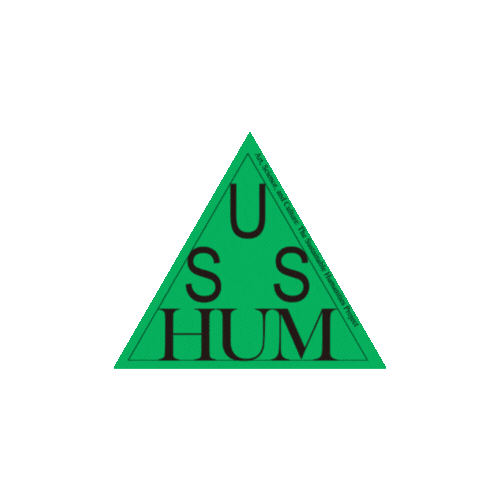
Welcome to SUSHUM.
: About

‘Rethinking humanism involves rethinking what forms of intelligence, truth, and expertise counts.’
-Jamie Lorimer
It is necessary to start any discussion about how the Humanities can contribute to sustainability with what critics have called the “cultural deficit”: academic humanists, cultural theorists, and artists have not sufficiently been at the centre of conversations about what sustainability is and could be.
As social-militaristic-ecological damages are on the rise around the world, a major cultural shift is needed to produce new knowledge, awareness, shared aims, and resilience. And the humanities can help. Fundamentally, humanists investigate collective beliefs about humans’ relationship to nature, resources, and cultural heritage, and then integrate humanities knowledge across the disciplines with the aim to:
-
critically interrogate how we construct knowledge about the world-at-large (natural, virtual, artificial, “futures”);
-
interpret the eco-linguistic diversity we use to define and shape our values, goals, and actions;
-
probe the hidden values in technoscientific inquiry and practice;
-
analyze the conjunctures and contexts out of which ideas become real, actionable, shiftable, and sustainable.
Extending from FHM’s flagship research programme in “Comparative Cultures of Care” (CCC) and echoing the spirit of “Humanities Can,” SUSHUM is composed of three pillars:

'Humanities Can! '



The Faculty of Humanities promotes the pursuit of academic knowledge, cross-cultural awareness and intercultural competencies, with a view to nurturing our graduates in a wide spectrum of the humanities. FHM strives for excellence in research and academic development in order to address issues from a global perspective, to advocate the understanding of human nature, and to impact positively on the well-being of Hong Kong society and beyond.



SUSHUM x CARE Ethics and Politics
SUSHUM strengthens CARE by clearly demonstrating how the Humanities contribute to its priorities of care and compassion. It highlights the ecological significance of humanities education, which extends beyond merely addressing environmental issues. This perspective aligns with the core values of care, as the humanities offer vital insights into social structures, power dynamics, and cultural practices that are crucial for advancing social justice and fostering inclusive communities.
SUSHUM integrates theoretical frameworks such as ecocriticism, environmental criticism, and cultural studies to address sustainability challenges at both local and global levels. Its subprojects —focusing on art education, citizen science, and film and visual studies of the non-human world—advance the principles of care and compassion by fostering collaboration among cross-faculty and international teams, as well as engaging EduHK students and local youth. These initiatives serve as concrete examples of how the humanities can empower individuals to think critically and act responsibly toward the environment.
The ’Comparative Cultures of Care: An Interdisciplinary Project’ is a large-scale research project of the International Research Centre for Cultural Studies (IRCCS) within the Faculty of Humanities (FHM) at the Education University of Hong Kong (EdUHK). The project aims at developing a critical humanistic understanding of care theories and practices as a strategic flagship area encompassing research, pedagogy, youth leadership development, and community projects, and promoting care cultural and professional competency among EduHK’s graduates and young professionals.



SUSHUM x SDGs
The importance of the 17 United Nations’ Sustainable Development Goals (SDGs) is widely recognised. SUSHUM is conceived to meet the following SDGs:
SUSHUM is generously funded by the Central Reserve Allocation Committee (CRAC) of the Education University of Hong Kong.
The Central Reserve Allocation Committee (CRAC) was established in 2014 with the aim of providing targeted resources to support EdUHK’s strategic agendas. Funded projects have ranged from key capital/IT infrastructure projects, building focused research expertise, promoting RAE performance, enhancing organisational and institutional capacity and a range of learning and teaching projects.

SUSHUM x CRAC



Mission
SUSHUM helps to empower EduHK students and faculty to engage in environmental sustainability through interdisciplinary education, immersive experiences, and collaborative initiatives, fostering a culture of care and environmental stewardship.
SUSHUM aligns with the UN’s Sustainability Development Goals (SDGs), with the aim of helping to raise EduHK’s sustainability rating, and to position the institution as a leader in sustainability education by setting an example for other local universities.
Vision
Aims
-
To raise the public profile of EduHK as a university actively supporting environmental sustainability through visible intellectual and hands-on activities.
-
To retool FHM by extending its strengths toward a new strategic focus on “sustainability” under the framework of “Comparative Cultures of Care.”
-
To equip graduates with environmental sustainability competencies aligned with the graduate attributes framework (“PEER & I”) and the University’s new strategic priority on sustainability.
-
To form an international network of scholars and researchers in Environmental Humanities for dialogue, conferences, co-publications, and grant-seeking.
-
To facilitate systematic collaboration across University Faculties by converging similar but disparate initiatives and building shared teaching, learning, and research activities.
-
To establish EduHK’s presence at the local district level through environmental sustainability partnerships.
-
To provide students with caring youth leadership experiences in environmental sustainability through immersive experiences, workshops, tours, and project development.
-
To expose EduHK students to top-tier environmental organizations (e.g., Kadoorie) for immersive and reflective community care experiences.



